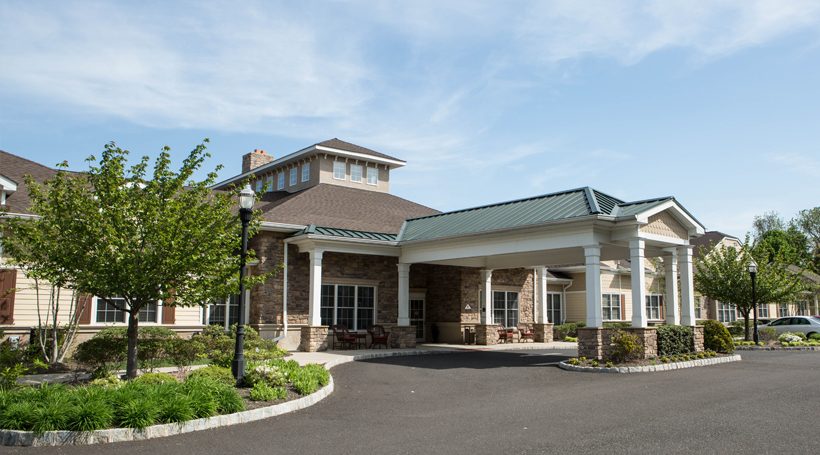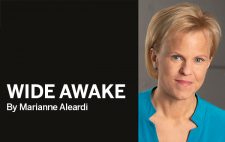It’s hard to recognize, and even harder to accept, when the child-parent roles reverse and it’s time to start taking care of your parents. For many, elderly care communities are not places they know much about until it’s suddenly important to figure it out very quickly.
To the uninitiated, elderly care can be a daunting topic. After all, you want the very best for your loved ones. With that in mind, the experts at CareOne can lead the way.
Finding the right community
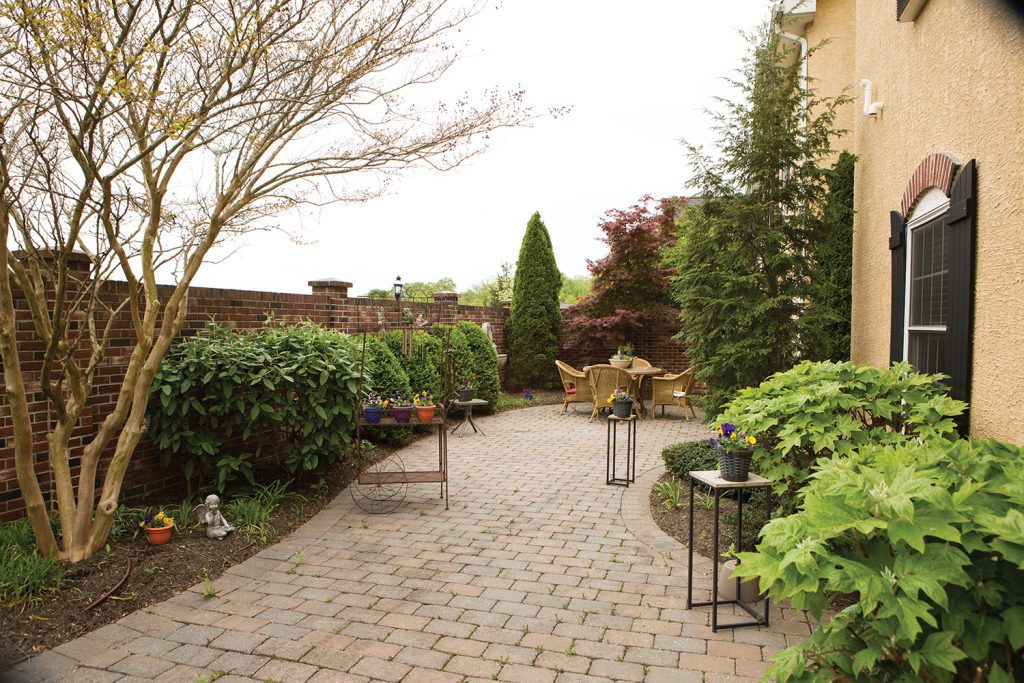 Assisted living communities are best suited for those who need clinical support in the course of their day-to-day lives. But before you start booking tours of facilities, it’s best to start by having “the talk” with your parents.
Assisted living communities are best suited for those who need clinical support in the course of their day-to-day lives. But before you start booking tours of facilities, it’s best to start by having “the talk” with your parents.
“It’s important that everyone – your parents included – understand and recognize the need for the move,” says Alyson Mulryne, senior executive director of CareOne at Evesham Assisted Living. “You want your parents to know that they worked hard their entire lives, and now it’s time for them to be taken care of.”
Next, narrow down what types of communities would meet their needs. One of the biggest mistakes, Mulryne notes, is not choosing a facility with specific offerings that address your parents’ needs. Some important questions include: How important is the dining experience? What type of social programs do they like? What are the priorities in terms of living space? And remember, it’s not about just the amenities.
“You can have the most beautiful library in the state or offer all the activities, but at the end of the day, it’s about what the staff is going to do to take care of your parents as individuals,” she says.
Every facility has its own unique feel and culture, she says, and CareOne at Evesham Assisted Living, with its boutique vibe and classic elegance, is no different. You want a place that matches their personality, she says, noting she has seen many residents thrive in the right environment.
“Sometimes people just need that little extra support, that feeling of being in their comfort zone, to get back to their former selves,” Mulryne says. “For many, it’s like getting their lives back.”
When a parent needs special memory care
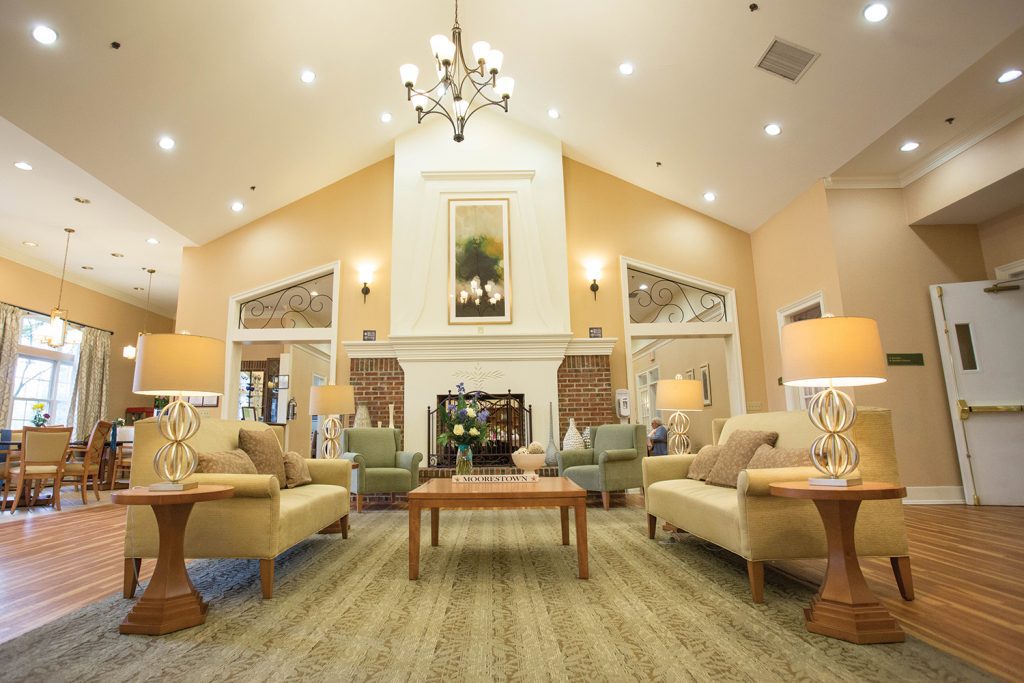 If your loved one is experiencing dementia, it’s important to find a facility with programming and care options designed specifically for people with Alzheimer’s and other forms of cognitive impairment, says Rachael Wittman, executive director of Harmony Village at CareOne Stanwick Road in Moorestown, which specializes in memory care.
If your loved one is experiencing dementia, it’s important to find a facility with programming and care options designed specifically for people with Alzheimer’s and other forms of cognitive impairment, says Rachael Wittman, executive director of Harmony Village at CareOne Stanwick Road in Moorestown, which specializes in memory care.
“Dementia requires specialized care,” Wittman says. “You want to make sure the staff is specifically trained not only to treat your loved ones, but to make sure they still maintain their quality of life.”
At Harmony Village, everything in the building – from the layout to the food, activities and staff – is designed to provide residents with both stimulation and safety. Harmony Village contains 4 neighborhoods grouped by residents on similar cognitive levels which allow caregivers to vary their programs to best meet their needs.
“We realize that people in different stages of cognitive ability are able to do different things, so we want to foster activity in those who can without making others feel inferior if they aren’t at the same level,” Wittman says. “We have 4 different activity calendars for the 4 different neighborhoods.”
Even the food has to be carefully thought out, she adds.
“As dementia progresses, a resident’s food needs change,” says Wittman. “Some foods become more challenging to eat than others, so we cook foods that won’t become a choking hazard. Many people in later stages have trouble swallowing, so we’ve implemented a program called ‘Perfectly Pureed’ where, instead of just putting pureed food on a plate, we mold it into shapes that look like solid food. This ensures that our residents can be at ease eating with others.”
You want to choose a facility that treats their residents with dignity and respect, Wittman adds.
“We’ve hosted 50th wedding vow renewals here,” she says. “In pre-Covid times, we took our residents pumpkin picking or to volunteer in the community. Just because someone has dementia doesn’t mean they aren’t capable, that they can’t create, be innovative and enjoy their lives.”
Having medical care in-home
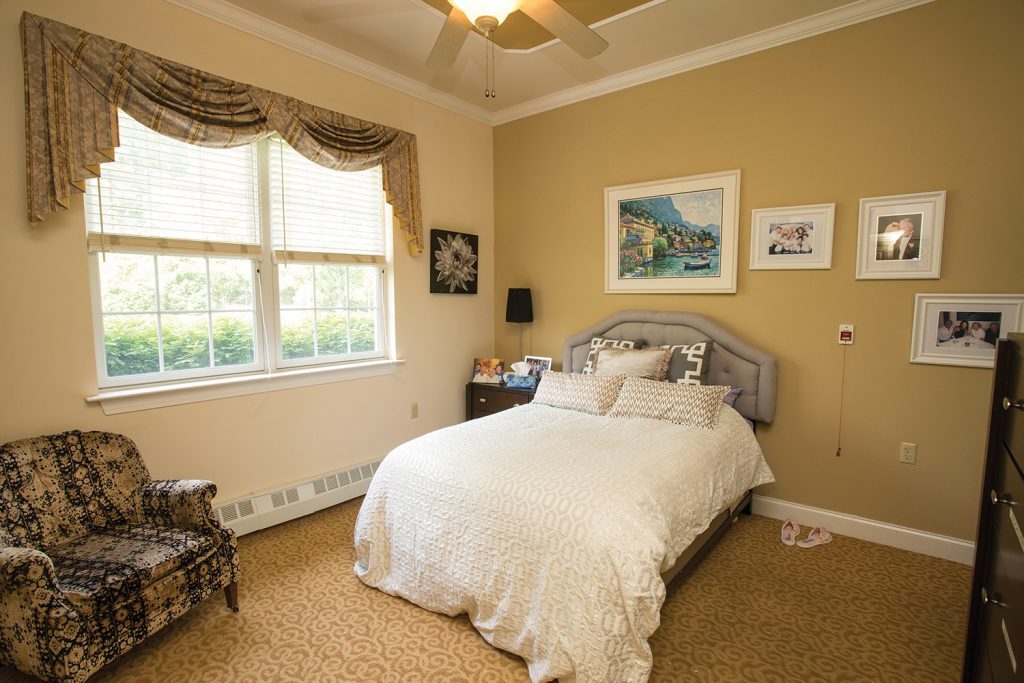 No matter how healthy your parents may be, it’s likely they’ll need medical care at some point in their later years. That’s why choosing a home that offers expert care in-house is key, says Celeste Johnson, nursing home administrator at CareOne at Moorestown.
No matter how healthy your parents may be, it’s likely they’ll need medical care at some point in their later years. That’s why choosing a home that offers expert care in-house is key, says Celeste Johnson, nursing home administrator at CareOne at Moorestown.
“When assisted living also has expert care, it allows loved ones to age in place,” she says.
CareOne at Moorestown is a hybrid model that specializes in assisted living and sub-acute care, which provides rehabilitation and nursing services after hospital stays or surgical procedures.
“The beauty is that residents never have to leave their home for medical attention,” she says. “Care, physical therapy – it’s all under your roof. There’s continuity, consistency and familiarity, and it allows us to really get to know our residents on a personal level and understand what they truly need.”
CareOne’s medical team includes skilled experts in a multitude of disciplines and specialties, from compassionate nurses to experienced cardiologists and oncologists. That’s exactly what you should be looking for in a care team, says Johnson.
“Many of our care staff have been here for 10 years or more, and we take a lot of pride in that,” she says. “We are committed to delivering quality of care and excellence in our field every day. It’s a great environment to rehab and recover.”
Ask around
The first thing you should do when choosing a care facility is ask friends and neighbors about their experiences, says Mark Sorrento, administrator at CareOne at Evesham.
“When you’re looking for a trusted provider, you shouldn’t scour the internet for reviews from people you don’t know,” says Sorrento. “Ask your neighbors. Talking to someone who had a family member at a particular care facility is the best way to learn what it’s really like to live there.”
The next step, he says, is to observe the community with an extra-keen eye. In pre-pandemic times, Sorrento always suggested visiting communities during off-hours.
“That’s the best time to pick up on the interactions between residents and staff,” he says. “You want to keep an eye on things like: Is everyone on a first-name basis? Do residents look comfortable when you pass by their room? Are they dressed nicely, and are their living areas tidy?”
These are the biggest indicators of quality of life at a care facility, he says. But because many communities are not currently allowing outside visitors due to Covid restrictions, including CareOne, he suggests asking for Zoom meetings with the staff, virtual tours and resident references.
“Look for facilities that go above and beyond to show you their facilities and give you access to their staff for any questions you may have, even if you can’t visit in-person,” he says. “That’s the mark of a facility that truly cares about its residents’ quality of life.”

870 Route 70 East, Marlton • 856-396-0005 • Website


